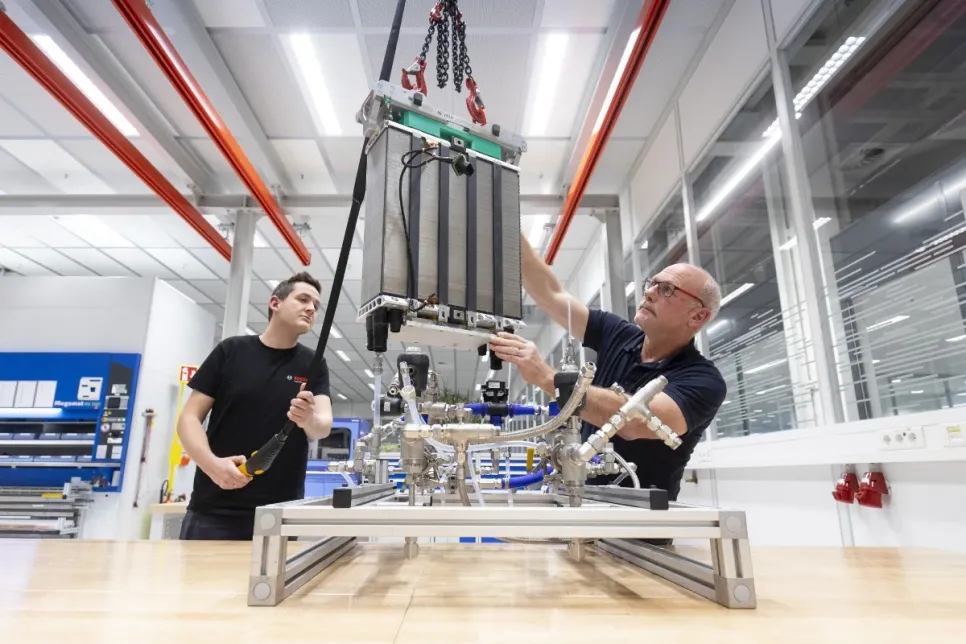Qualcomm Announces Snapdragon 8 Gen 5 Platform
Qualcomm added its latest smartphone platform to its premium-tier Snapdragon range.

The Bosch fuel-cell power module is in volume production. And with that, the technology company’s recycling plan is getting underway.
Fuel cells contain what are known as platinum group metals (PGMs), and circular economy models are a particularly worthwhile way to recover these valuable raw materials. For example, almost all the platinum in fuel-cell stacks, at least 95 percent, can be recovered. That is why Bosch aims to repurchase stacks when their useful life expires.
“By recycling, we can make the stacks more economical and at the same time reduce the carbon emissions associated with platinum mining,” says Thomas Pauer, the president of the Bosch Powertrain Solutions division. “We’re already laying the groundwork for recovering rare raw materials like platinum. Our estimates suggest that by 2030 at the latest, appreciable numbers of fuel cells will need recycling,” he added.
Platinum acts as a catalyst in the fuel cell, accelerating the reaction of hydrogen and oxygen. Recycling platinum can save more than 95 percent of the carbon emissions associated with platinum mining. The first, important step in this direction is an agreement with the mobility provider Hylane, which provides for the repurchase of fuel-cell stacks by Bosch when their useful lives expire.
Under the new model agreement with Hylane, Bosch is guaranteed an option to repurchase stacks for mobile applications. The stacks themselves will be recycled by a third-party company. In the subsequent production process, Bosch will use the platinum recovered for new Hylane stacks.